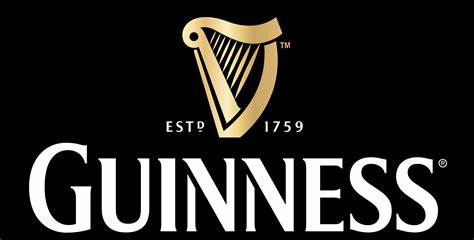Brands
Guinness Dividends: the good times are here again!

Okey Onyenweaku
In what would evidently come across as a comeback story in all respects, GUINNESS NIGERIA has posted quite impressive 2021 fiscal year results that heavily compensates for the dismal showing that had been its lot in more recent years. And placed in perspective, this is looking like no mean feat.
Indeed, those who were born after the 1980’s may not fully appreciate the status and stature of Guinness Nigeria. The company was in fact, the rave of the moment and may have dominated the beer industry at that time. However, it is doubtful to ascribe such strong and domineering stature to the firm now. A lot of liquid has passed under the bridge.
Without any doubt, there is stiff competition in the arena now. It is even stiffer now that alcoholic drinks are packaged in various small shapes and sizes. It is even more so when incomes keep shrinking by the day.
Yet the company raked a huge profit for the year ended 2021, up from a staggering loss position in 2020.
The multinational company has announced impressive audited results for the period ended June 30, 2021 revealing a 110 per cent increase in profit after tax to N1.25billion from a loss of N12.6billion reported in full year ended June 30, 2020.While revenue rose 54 percent from N104.376bn in 2020 to N160,416bn in 2021; Inventories came down 19 percent from N26,426billion in 2020 to N21,460bn in 2021. Loans and borrowings dropped from N22,800bn to N15,993bn in 2021.
In the last five years from 2017 to 2021, Guinness Nigeria has grown its revenue by 27.3 per cent in 2017 to 160,416bn in 2021; Profit before tax also grew 116.7 per cent in 2021. Shareholders funds also grew by 74 per cent from N42,943Bn in 2017 to N74,786bn in 2021.This is no mean performance to both shareholders and analysts given the harsh and quite tough operating environment.
Speaking on the announcement, Baker Magunda, managing director/chief executive officer, Guinness Nigeria Plc, said the performance showed that the business delivered growth despite the challenging external environment characterized by COVID-19 restrictions and high inflation.
“Revenues grew double-digit across all key categories, particularly our strategic focus brands Guinness, Malta Guinness as well as our local and imported spirits,” he submitted.
“This was supported by improved product mix and headline price increases in key brands. Gross margins declined by 3% driven by inflationary pressure, a shift towards more expensive can products given at-home consumption trends, and forex devaluation impacting some materials.”
Further details revealed that its operating profit increased by 177 percent benefiting from lapping significant impairments in the prior year and reduced administrative expenses arising from productivity savings.
Net finance costs remained on similar level as last year despite the lower debt position, due to the devaluation of Naira impacting the foreign currency-denominated trading balances.
“Tax was impacted by a one-off historic charge. Profit before tax increased to N5.8 billion, a 134% growth versus same period last year; and distribution expenses increased by 22% versus last year behind volume growth due to efficiency improvements across distribution channels,” Magunda said.
“Going into the new fiscal year, we are conscious of the continued challenging operating environment with double-digit inflation and pressured consumer income spending.
“However, we will continue to focus on our strategy – optimising our route to consumer, innovating at scale to satisfy our consumers and improving cost control – as we continue to emerge stronger from the current crisis. We remain confident about the execution and resilience of our Total Beverage Alcohol strategy as a key driver of sustainable growth in the market.”
The management recommended N1,008 million dividend, subject to shareholders’ approval at the forthcoming Annual General Meeting (AGM).
It is to be appreciated also that the impact of Covid-19 partly had dealt a staggering blow to the company in 2020 when it closed its books in the red.
Whereas economies appear to be opening up gradually, new variants of Covid-19 are still very much around and severe.
Recall that the firm had returned to profitability from two quarters of losses in its current financial year ending June 2021. The brewing company closed the third quarter trading with a profit of N1.8 billion for its nine months period.
To be sure, the process of returning the company to profit was a gradual one: from a net loss of N842 million in its first quarter, which went down to N317 million at the end of the second quarter following a profit of N524 million for the quarter. Its profit of N2.2billion in the third quarter helped to clear the outstanding loss of nearly N13billion in the 2020 financial year.
Challenges
While the company had blamed the shrinking economy, which has remained weak at the GDP growth of 5.01 per cent in the second quarter 2021 from 6.1 per cent negative in 2020; the weak naira which is weakening by the day and partly responsible for lower domestic demand for its products, independent analysts claim that part of the company’s problem is a palpable loss in market share due to a growing bargain basement market for beer. As rgwy argue, premium beer brands are increasingly losing space on the average consumers shopping list as cheaper brands create greater spending flexibility in the face of a biting economic challenge.
The breweries sector has been deeply challenged since 2013 and is suffering a decline.This many believe is hurting sales volume and squeezing margins for all the operators.
Low consumer spending has also been fingered for the challenge. Among the troubles of the industry is rising consumer prices and growing volumes of unpaid workers’ salaries in public and private sectors, in addition the increasing unemployment. There is stiffer competition in the sector and companies seem to increase the cost of sales now than ever before.
Interestingly, the company has rolled out strategies to sustain global best practices aimed at consistently delivering business growth for stakeholders.
Some of its competitors include Anheuser-Busch InBev World’s largest brewer among others.
Analysts have said the brewer has not performed well in recent times, fingering insecurity in the country as part of its challenges.
‘’The results have not been good. Weak demand for its products is affecting its bottom-line. Its big market in the North East which has been affected adversely by the nefarious activities of Boko Haram’’, said a Lagos based analyst and Managing Director, High Cap Securities Limited, David Adonri.
Similarly, Managing Director of Crane Securities Limited, Mr Mike Ezeh, told Business Hallmark that it is difficult for companies to perform magic in an economy that is experiencing recession.
‘’The company has been posting loses and I don’t see it performing wonders in this economy’’.
Agusto & Co., Research, Credit Ratings, Credit Risk Management had rated Guinness Nigeria Plc a in 2015 as having inadequate working capital, adding that stiff competition for products in the value segments and Sub-optimal distribution network in rural areas are also some its challenges.
In fact, there is a consensus that Guinness Nigeria has failed to re-event itself like its competitor Nigerian Breweries Plc which did strategic acquisitions which has helped it solidify and expand its market base.
Research revealed that the major factors driving the change in beer consumers’ drinking habit include rising cost of living and decrease in purchasing power of consumers which has had an industry-wide impact on the beer market.
Premium beer brands bleeding from the economic squeeze include Guinness Nigeria Plc’s Guinness Extra Stout and Harp Larger Beer, Nigeria Breweries’ Star, and Gulder. While they groan, brands like Goldberg(NB) , 33(NB), Hero(Sabmiller), Trophy (Sabmiller), Life(NB), Champion, Turbo King(Consolidated Breweries) and Wilfort Dark Ale(Sona Breweries), are smiling to the banks.
Despite the brewery industry’s weakness, Guinness Nigeria’s performance recently is impressive in the key performance metrics.
Brand performance
In the last few years, Guinness performance has been mixed however its introduction of Orjin, an herbal drink in 2013 and other innovative moves have helped to save the company. Within three years in the market, the brand won a sizable chunk of the bottled herbal drinks. According to a marketing research company, Nielsen Nigeria, Orijin controls over 50 percent market share of the market. However, while Orijni soared, the performance of other brands in the company’s brand portfolio has been flagging.
Although industry observers may argue that Guinness’ undoing lies in its iron-clad mono-product culture that sees devote unparalleled attention to its flagship brand, Foreign Extra Stout, the reality is that the company has not been very lucky with innovations( except for Orijin of course). its attempts to broaden its offerings have not been as successful as efforts by it reach rival Nigerian Breweries. Although older brands such as the Foreign Extra Stout, introduced in 1962),Harp, Malta-Guinness have weathered fierce competition with more than a few bruises, latter additions like Harp Lime, Gordon’s Spark and Armstrong Black Lager failed and were discontinued. Even latter arrivals such as Dubic Extra Lager, launched in April 2012 and SNAPP, born in September 2012 are yet to make impressive inroads in their respective market segment due to stiff competition and the inability of Guinness to reinvent itself in the face of market dynamics.
Clearly, Guinness would need to push more caps to remain atop.








